Filter by

The African National Congress and the Regeneration of Political Power
The ANC is a party-movement that draws on its liberation credentials yet is conflicted by a multitude of weaknesses, factions and internal succession battles. Booysen constructs her analysis around the ANC’s four faces of political power – organisation, people, political parties and elections, and policy and government – and explores how, since 1994, it has acted to continuously regenerat…
- Edition
- -
- ISBN/ISSN
- -
- Collation
- -
- Series Title
- -
- Call Number
- 320
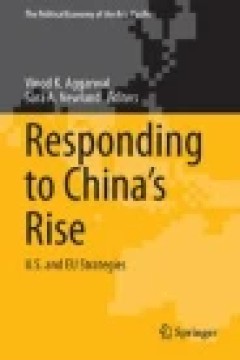
Responding to China’s Rise
In this edited volume, a set of issue and country experts tackle questions regarding China’s current rise to power within the current international economic and political order. The current international system is governed by a “Western” conception of order and based on the primacy of post–World War II rules, drawn from liberal models of capitalism and democracy practiced in the US and …
- Edition
- Ed. 1
- ISBN/ISSN
- 978-3-319-10034-0
- Collation
- -
- Series Title
- -
- Call Number
- -
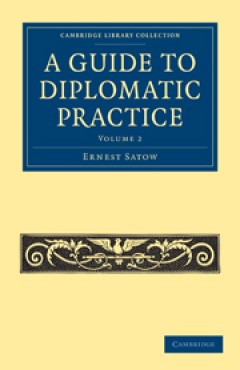
A Guide to Diplomatic Practice
Recruited straight from university, Ernest Satow (1843–1929) became one of the most respected British diplomats, particularly in Japan, where he is still remembered. After a career spent mostly in the rapidly developing Far East, he retired in 1906. Just before the outbreak of war, he was asked to compile a work on international diplomacy, and 'Satow', as it has become known, was first publis…
- Edition
- -
- ISBN/ISSN
- 9780511995200
- Collation
- -
- Series Title
- Cambridge Library Collection - British and Irish History, General
- Call Number
- -
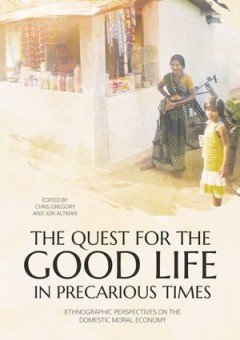
The Quest for the Good Life in Precarious Times: Ethnographic Perspectives on…
The study of the quest for the good life and the morality and value it presupposes is not new. To the contrary, this is an ancient issue; its intellectual history can be traced back to Aristotle. In anthropology, the study of morality and value has always been a central concern, despite the claim of some scholars that the recent upsurge of interest in these issues is new. What is novel is how s…
- Edition
- -
- ISBN/ISSN
- 9781760462000
- Collation
- -
- Series Title
- -
- Call Number
- 420 QUE q
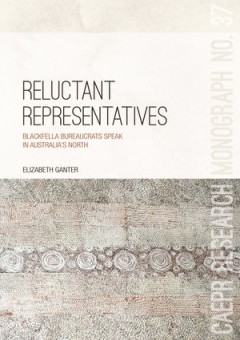
Reluctant Representatives: Blackfella bureaucrats speak in Australia’s north
How can you make decisions about Aboriginal people when you can’t even talk to the people you’ve got here that are blackfellas?’ So ‘Sarah’, a senior Aboriginal public servant, imagines a conversation with the Northern Territory Public Service. Her question suggests tensions for Aboriginal and Torres Strait Islanders who have accepted the long-standing invitation to join the ranks of …
- Edition
- -
- ISBN/ISSN
- 9781760460327
- Collation
- -
- Series Title
- -
- Call Number
- 420 GAN r
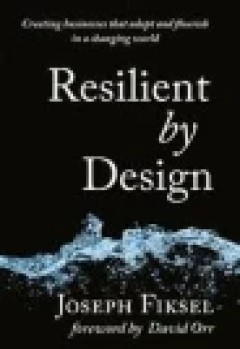
Resilient by Design
This book explains how to connect the health and viability of important external systems—stakeholders, communities, infrastructure, supply chains, and natural resources—to create innovative, dynamic organizations that will find a way to survive and prosper. As managers grapple with the challenges of the global economy, they are paying increasing attention to their organization’s resili…
- Edition
- Ed. 1
- ISBN/ISSN
- 978-1-61091-588-5
- Collation
- -
- Series Title
- -
- Call Number
- -
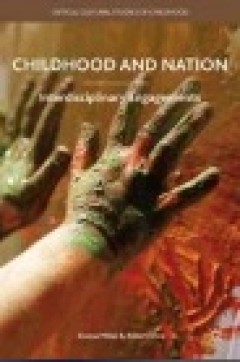
Childhood and Nation : Interdisciplinary Engagements
Childhood and Nation explores the historical and manifold current relations between nation and childhood. Millei and Imre bring together an international and interdisciplinary group of scholars to address many pressing questions of today. The analytical incisions created by nation and childhood bring answers to the following questions: How do national agendas related to economic, social and pol…
- Edition
- -
- ISBN/ISSN
- -
- Collation
- -
- Series Title
- -
- Call Number
- -

Effects of Including Agricultural Products in the Customs Union between Turke…
The inclusion of agricultural products in the current customs union is one of the potential future steps on the road to further political and economic integration between Turkey and the EU. This book examines the effects of such integration of agricultural markets on the Turkish agricultural sector as well as on consumers and the Turkish budget. Results are compared to alternative options for T…
- Edition
- -
- ISBN/ISSN
- 9783631519349
- Collation
- 336 halaman
- Series Title
- -
- Call Number
- 630 GRE e
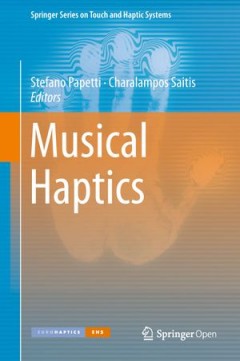
The Science Communication Challenge: Truth and Disagreement in Democratic Kno…
The Science Communication Challenge explores and discusses the whys – as distinct from the hows – of science communication. Arguing that the dominant science communication paradigm is didactic, it makes the case for a political category of science communication, aimed at furthering discussions of science-related public affairs and making room for civilized and reasonable exchanges between d…
- Edition
- -
- ISBN/ISSN
- 9781783087532
- Collation
- -
- Series Title
- -
- Call Number
- 297.27

Militant Jihadism: Today and Tomorrow
Jihadist militants keep being a global threat. Many observers suggest that a transformation is likely to happen in their organisation, operation, mobilisation, and recruitment strategies, particularly after the territorial decline of the “Caliphate” of the “Islamic State.” This volume explores different aspects of the future trajectories of militant jihadism and the prospective transfor…
- Edition
- Vol. 6.0
- ISBN/ISSN
- 9789461663023
- Collation
- -
- Series Title
- -
- Call Number
- 297.46 MIL m
 Computer Science, Information & General Works
Computer Science, Information & General Works  Philosophy & Psychology
Philosophy & Psychology  Religion
Religion  Social Sciences
Social Sciences  Language
Language  Pure Science
Pure Science  Applied Sciences
Applied Sciences  Art & Recreation
Art & Recreation  Literature
Literature  History & Geography
History & Geography